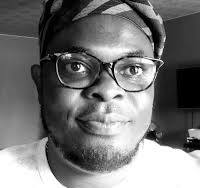
Ethics essentially involves what is right, equitable, fair, just, dutiful or responsible. Therefore ethical media practice is important because of its high level of public impact. For example in conflict-prone societies, unethical media reporting can exacerbate conflict and trigger more violence.
Unethical media reporting may as well give rise to abuse or irresponsible journalism that pursues sensationalism, biases, prejudices, plagiarism or even blackmail as the case may be.
Manifestations of unethical media reporting are particularly dangerous in the context of highly contested electoral processes in which objectivity and balance are compromised to suit the narrative of a superior interest.
More worrisome is the fact that every dick and harry now dabbles into the profession either to make ends meet, practice for political ambition or easily pick it up at the time of employment recession in the country; this scourge is seen to be pervasive in the online or new media. With the aid of the internet and a laptop or smart phone, people now own newsrooms, becoming their own writers and publishers at the convenience of their rooms. Journalism as a profession especially in Nigeria is seen to have been hijacked by some few quacks or subtly put, people from other professional careers at the detriment of the noble profession.
Ideally the professional calling of the mass media is that of watchdog role, by probing the activities of leaders and informing citizens against abuse of power specifically through reporting of their administrative faux pas or indiscretion, corruptive and avarice tendencies which has since, been recognized as catalyst for development; and to also create opportunities for the anti graft bodies to expose, punish, sanction and deter the perpetrators just as to open room for growth, accountability, decency, discipline, transparency and probity.
In specific terms, the media are entrenched with constitutional responsibility embedded in section 22 of the1999 constitution to institute responsibilities in government and make them accountable to the people.
Although, the relationship between journalists and political sources has been characterized by a tug of war between reporters and officials where top politicians have the upper hand in the co-production of news through their ability or influence to dictate what the content of the news should be.
Objectivity in today’s super heated political environment may be arguably impossible, but impartiality should still be a reporter’s goal. Even those who are paid to have opinions, columnists, editorial writers, talk show hosts, bloggers etc, should at least be aware of all relevant points of view to avoid imbalance.
Meanwhile, the media searchlight is not only limited to the dealings in the political circles; the whistle blowing job, information dissemination or investigative task of a journalist are expected to cut across all spheres of human endeavors for the overall good of the society, while also making the practice to look prestigious and attractive to people in other discipline.
It is very disturbing to see skeptics of journalistic objectivity to be quick at pointing out that some publishers and owners of news media outlets may not follow the rules they lay down for their employees, however this misconception and ugly narrative need to be corrected so as to give the profession the dignity and respect it deserves.
To deepen the fundamentals of the noble profession, practitioners must effectively and efficiently carry out their core responsibilities in a most courteous and socially responsible manner, though this is often faced with daunting challenges ranging from anti-press laws, inadequate remuneration seeming overriding interests of media owners, to lack of self censorship among others.
Notwithstanding, the media must continually take into consideration the socio-cultural condition under which it operates, even as it does not lose sight of the universal commitments and requirements of the profession as well as the core values.
Government must also give a freehand to the media in carrying out their duties by expunging obnoxious laws that infringe on the effective journalism practice and freedom of expression as stipulated in the constitution.
The effort to rid the media of non-professionalism that often gives the profession a bad name requires a holistic approach by all stakeholders. More pointedly, relevant regulatory bodies and associations need to embolden or enforce the code of ethical conduct as well as ensure that necessary training and right attitudes are properly introduced to form a basis for entrance into the profession so as to consistently engender sanity and propriety in the professional practice.
*EmmanuelAjibulu is an infoprenuer, publisher of Veracity Desk (www.veracitydesk.com), writer, communication consultant and social media influencer.